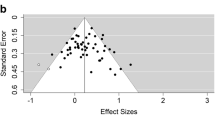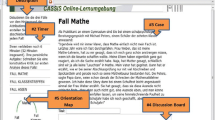Abstract
Computer-Supported Collaborative Learning (CSCL) scripts aim to structure the process of collaboration creating opportunities for productive social interaction and learning. Despite CSCL research has shown these benefits for some scripts in particular contexts, more evidence is needed about to what extent learning gains are actually achieved for more families of scripts and in different conditions of implementation. This paper studies how three CSCL scripts based on the Pyramid collaborative learning flow pattern facilitate students learning in online classes. Learning gains are measured in terms of precision and confusion assessment criteria. Students’ behaviour in the learning process, regarding agreement in the knowledge exchange, is also analysed in relation to the learning gains. Results bring out several factors, and implications for the design of fruitful Pyramid scripts implementation, that related to the pedagogical envelope, the type of tasks, pyramid design elements, the need for epistemic orchestration, and debriefing.
Access this chapter
Tax calculation will be finalised at checkout
Purchases are for personal use only
Similar content being viewed by others
References
Amarasinghe, I., Hernández-Leo, D., Michos, K., Vujovic, M.: An actionable orchestration dashboard to enhance collaboration in the classroom. IEEE Trans. Learn. Technol. 13(4), 662–675 (2020)
Dillenbourg, P.: Over-scripting CSCL: the risks of blending collaborative learning with instructional design. In: Kirschner, P.A. (ed.) Inaugural Address, Three Worlds of CSCL. Can We Support CSCL? pp. 61–91. Open Universiteit Nederland, Heerlen (2002)
Dillenbourg, P.: Design for classroom orchestration. Comput. Educ. 69(1), 485–492 (2013)
D’Mello, S., Lehman, B., Pekrun, R., Graesser, A.: Confusion can be beneficial for learing. Learn. Instr. 29, 153–170 (2014)
Hernández-Leo, D., Villasclaras-Fernández, E.D., Asensio-Pérez, J.I., Dimitriadis, Y.A., Retalis, S.: CSCL scripting patterns: hierarchical relationships and applicability. In: 6th IEEE International Conference on Advanced Learning Technologies, pp. 388–392 (2006)
Kapur, M.: Productive failure in learning math. Cogn. Sci. 38(5), 1008–1022 (2014)
Kollar, I., Fischer, F., Hesse, F.W.: Collaboration scripts - a conceptual analysis. Educ. Psychol. Rev. 18(2), 159–185 (2006)
Kobbe, L., et al.: Specifying computer-supported collaboration scripts. Int. J. Comput. Support. Collab. Learn. 2(2–3), 211–224 (2007)
Liu, L., Hao, J., von Davier, A.A., Kyllonen, P., Zapata-Rivera, J.D.: A tough nut to crack: measuring collaborative problem solving. In: Handbook of Research on Technology Tools for Real-World Skill Development (2016)
Loibl, K., Roll, I., Rummel, N.: Towards a theory of when and how problem solving followed by instruction supports learning. Educ. Psychol. Rev. 29(4), 693–715 (2017)
Malzahn, N., Aprin, F., Hoppe, U., Eimler, S., Moder, S.: Measures of disagreement in learning groups as a basis for identifying and discussing controversial judgements. In: Proceedings of the 14th International Conference on Computer-Supported Collaborative Learning, pp. 233–236 (2021)
Manathunga, K., Hernández-Leo, D.: Authoring and enactment of mobile pyramid-based collaborative learning activities. Br. J. Edu. Technol. 49(2), 262–275 (2018)
Manathunga, K., Hernández-Leo, D.: Flexible CSCL orchestration technology: mechanisms for elasticity and dynamism in pyramid script flows. In: Proceedings of the 13th International Conference on Computer Supported Collaborative Learning, pp. 248–255 (2019)
Mugny, G., Doise, W.: Socio-cognitive conflict and structure of individual and collective performances. Eur. J. Soc. Psychol. 8(2), 181–192 (1978)
Radkowitsch, A., Vogel, F., Fischer, F.: Good for learning, bad for motivation? A meta-analysis on the effects of computer-supported collaboration scripts. Int. J. Comput. Support. Collab. Learn. 15(1), 5–47 (2020). https://doi.org/10.1007/s11412-020-09316-4
Acknowledgements
This work has been partially funded by the Volkswagen Foundation (COURAGE project, no. 95567). TIDE-UPF also acknowledges the support by FEDER, the National Research Agency of the Spanish Ministry, TIN2017-85179-C3-3-R, PID2020-112584RB-C33, MDM-2015-0502 and by ICREA under the ICREA Academia programme (D. Hernández-Leo, Serra Hunter).
Author information
Authors and Affiliations
Corresponding author
Editor information
Editors and Affiliations
Rights and permissions
Copyright information
© 2021 Springer Nature Switzerland AG
About this paper
Cite this paper
Amarasinghe, I., Hernández-Leo, D., Theophilou, E., Roberto Sánchez Reina, J., Quintero, R.A.L. (2021). Learning Gains in Pyramid Computer-Supported Collaboration Scripts: Factors and Implications for Design. In: Hernández-Leo, D., Hishiyama, R., Zurita, G., Weyers, B., Nolte, A., Ogata, H. (eds) Collaboration Technologies and Social Computing. CollabTech 2021. Lecture Notes in Computer Science(), vol 12856. Springer, Cham. https://doi.org/10.1007/978-3-030-85071-5_3
Download citation
DOI: https://doi.org/10.1007/978-3-030-85071-5_3
Published:
Publisher Name: Springer, Cham
Print ISBN: 978-3-030-85070-8
Online ISBN: 978-3-030-85071-5
eBook Packages: Computer ScienceComputer Science (R0)




